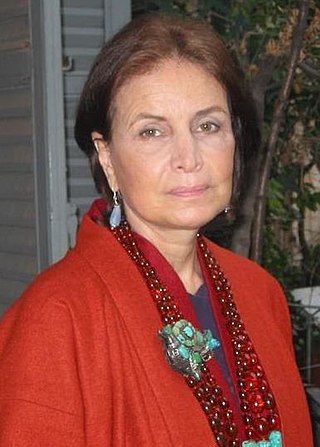
Kofi Atta Annan was a Ghanaian diplomat who served as the seventh secretary-general of the United Nations from 1997 to 2006. Annan and the UN were the co-recipients of the 2001 Nobel Peace Prize. He was the founder and chairman of the Kofi Annan Foundation, as well as chairman of The Elders, an international organisation founded by Nelson Mandela.
The legitimacy under international law of the 1999 NATO bombing of the Federal Republic of Yugoslavia has been questioned. The UN Charter is the foundational legal document of the United Nations (UN) and is the cornerstone of the public international law governing the use of force between States. NATO members are also subject to the North Atlantic Treaty.

The International Day of Peace, also officially known as World Peace Day, is a United Nations-sanctioned holiday observed annually on 21 September. It is dedicated to world peace, and specifically the absence of war and violence, such as might be occasioned by a temporary ceasefire in a combat zone for humanitarian aid access. The day was first established in 1981 and first observed in September 1982 and is kept by many nations, political groups, military groups, and people.

Ahmedou Ould-Abdallah is a Mauritanian diplomat who was a senior United Nations official.

Hassan Bubacar Jallow is a Gambian judge who has served as Chief Justice of the Gambia since February 2017. He was the Prosecutor of the International Criminal Tribunal for Rwanda (ICTR) from 2003 to 2016, and the Prosecutor of the International Residual Mechanism for Criminal Tribunals (IRMCT) from 2012 to 2016, both at the rank of United Nations Under Secretary-General. He served as Minister of Justice and Attorney General from 1984 to 1994 under President Dawda Jawara.

Alan Claude Doss is a British international civil servant who has spent his entire professional life in the service of the United Nations, working on peacekeeping, development and humanitarian assignments in Africa, Asia and Europe as well as at United Nations Headquarters in New York City.
United Nations Security Council resolution 1165, adopted unanimously on 30 April 1998, after recalling Resolution 955 (1994), the council established a third trial chamber at the International Criminal Tribunal for Rwanda (ICTR).

United Nations Security Council resolution 1170, adopted unanimously on 27 May 1998, after considering the situation across the African continent, the Council decided to establish an ad hoc Working Group to review the Secretary-General Kofi Annan's recommendations concerning the maintenance of international peace and security in Africa.

United Nations Security Council resolution 1241, adopted unanimously on 19 May 1999, after noting a letter to the President of the Security Council from the President of the International Criminal Tribunal for Rwanda (ICTR), the Council endorsed a recommendation of the Secretary-General Kofi Annan that judge Lennart Aspegren complete the Georges Rutaganda and Alfred Musema cases which had begun before the expiry of his term of office.

United Nations Security Council resolution 1315, adopted unanimously on 14 August 2000, after expressing concern at serious crimes committed in Sierra Leone, the Council expressed its intention to establish the Special Court for Sierra Leone to deal with violations of human rights, international law and war crimes in the country.

United Nations Security Council resolution 1504, adopted unanimously on 4 September 2003, after recalling Resolution 1503 (2003), the Council appointed Carla Del Ponte as Prosecutor at the International Criminal Tribunal for the former Yugoslavia (ICTY).

The Kofi Annan peace plan for Syria or the six-point peace plan for Syria was launched in March 2012 by the Arab League and the United Nations (UN), when the violent Syrian conflict or civil war had raged for a year.
Joseph Asoka Nihal De Silva was the 42nd Chief Justice of Sri Lanka.

The Lakhdar Brahimi peace plan for Syria refers to the joint UN-Arab League peace mission, headed by Lakhdar Brahimi in order to resolve the Syria Crisis. On 17 August 2012, Brahimi was appointed by the United Nations as the new peace envoy to Syria, replacing Kofi Annan, who had previously resigned, following the collapse of his cease fire attempt.

The Geneva II Conference on Syria was a United Nations-backed international peace conference on the future of Syria with the aim of ending the Syrian Civil War, by bringing together the Syrian government and the Syrian opposition to discuss the clear steps towards a transitional government for Syria with full executive powers. The conference took place on 22 January 2014 in Montreux, on 23–31 January 2014 in Geneva (Switzerland), and again on 10–15 February 2014.
Ahmad Fawzi is an Egyptian-born media spokesperson, who, for six months in July 2017, worked as Communication Adviser and Chief Spokesperson for the High Commissioner for Refugees. In 2015–2016 he served as interim Director of the United Nations Information Service in Geneva.

Anna Margherita Cataldi was an Italian humanitarian, journalist, film producer, and author of several books.
Taghreed Hikmat is a Jordanian judge. In 1996 she became Jordan's first female judge. She was a judge on the International Criminal Tribunal for Rwanda from 2003 to 2011. Later, she served in the Senate of Jordan from 2013 until 2020. Since October 2020 she has been a judge on the Constitutional Court of Jordan.
Nader Mousavizadeh is a businessman, author, geo-political advisor and commentator, and former senior United Nations official who was an advisor to Secretary-General of the United Nations Kofi Annan from 1997 to 2003. According to Perry Anderson in the London Review of Books, Mousavizadeh was one of Annan's two key advisers in this period, alongside Edward Mortimer. Mousavizadeh was born to a Danish mother and Iranian father, and grew up in Denmark. He moved to the United States where he studied at Harvard College and the Massachusetts Institute of Technology, and then moved to the United Kingdom where he was a Rhodes Scholar at Christ Church College, University of Oxford.













